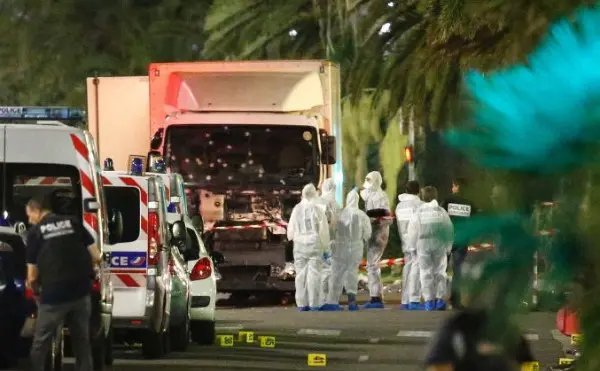France was stung by terrorism once more late Thursday, as a truck plowed through a crowd of revelers celebrating France’s Bastille Day holiday, killing at least 84 people and wounding more than 100.
French President Francois Hollande was quick to state that the "the terrorist character" of the truck attack cannot be denied. Later, the French authorities identified the suspected driver to be a 31-year-old French male of the Tunisian origin.
The attack is the third extremism-linked massacre in two years that hit the European republic known for upholding its national value of “liberty, equality and fraternity,” after the Charlie Hebdo and Paris attacks that took place in January and November last year.
The incidents are an excerpt of a recent wave of terror activities that left a trail of blood in Brussels, Orlando and Istanbul, all of which are branded with the mark of the extremism, an ideology that gained traction as the global economy lost momentum and havoc devastated the Middle East.
Aside from major attacks, religion-related violence on smaller scales is also on the rise. Together the string of planned violence targeting civilians has taken the lives of hundreds of people, shaking France, whole Europe as well as the world.
A large truckplowed into a crowdgathered to watch Bastille Day fireworks in Nice,France, on Thursday, killing scores of people in what the president of France called a terrorist attack.Photo:NYT
Hollande said he would have the state of emergency put in place after the Paris attacks extend for three more months, and the French authorities have started probing into the perpetrators and motives behind the latest brutality.
Widely considered to be a model for diversity, the French society attracted more immigrants than any other European countries, and has always prided itself for its inclusiveness. But falling victim repeatedly to extremist attacks has also exposed the weakness of French foreign and domestic policies.
Since the beginning of the “Arab Springs” that lead to the overthrow of the Tunisian, Libyan and Egyptian governments and the prolonged conflicts in Syria, Iraq and Yemen, France has lent its support to groups that opposed the “dictatorships” that Paris disliked, despite their suspected link to extremist ideology. It even went so far as sending troops into Libya to seek power change.
French police and forensic officers near the truck that ran into the crowd.Photo:Rueters
Though France may have awarded itself the justification for such meddling, it has by no means acted responsibly as the power vacuum that it helped create in crushing the institutions has given extremist groups the soil to expand without check.
Though France is waking up to the reality and Hollande has vowed to continue battle extremist groups in the Middle East, it must truly strike theterroristgroups without distinction for the war on terror to be fruitful, Syrian political analyst Osama Danura said.
Domestically, the success of immigrant-friendly policy rests on the healthy growth of the economy, which can generate enough jobs to accommodate the new comers, but with the economy stalling and the level of welfare as high as ever, the expanding number of immigrants can only add burden to the society while fostering discontent among themselves, heightening the risk of home-grown extremism.
(APD NEWS)
 简体中文
简体中文







